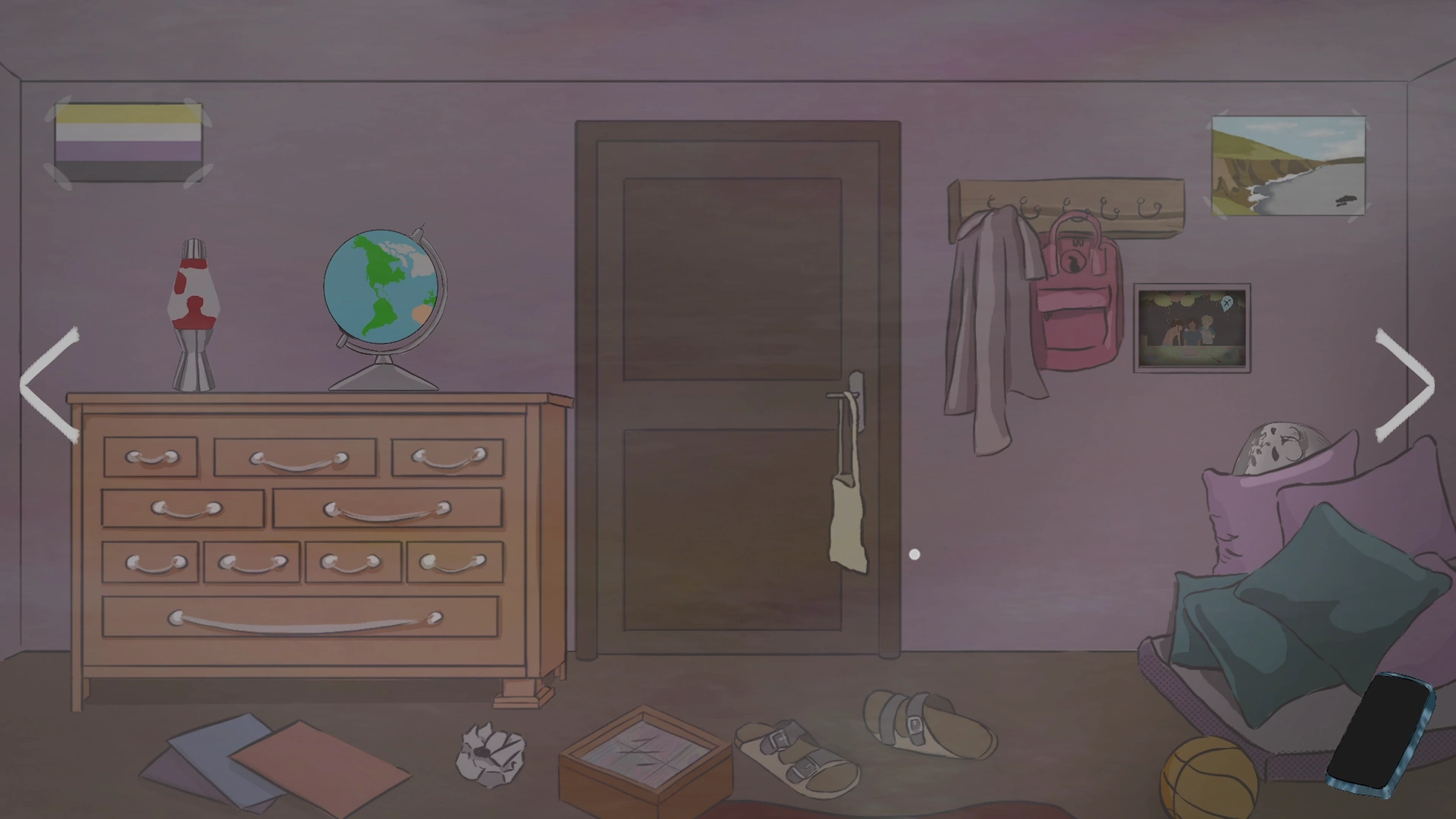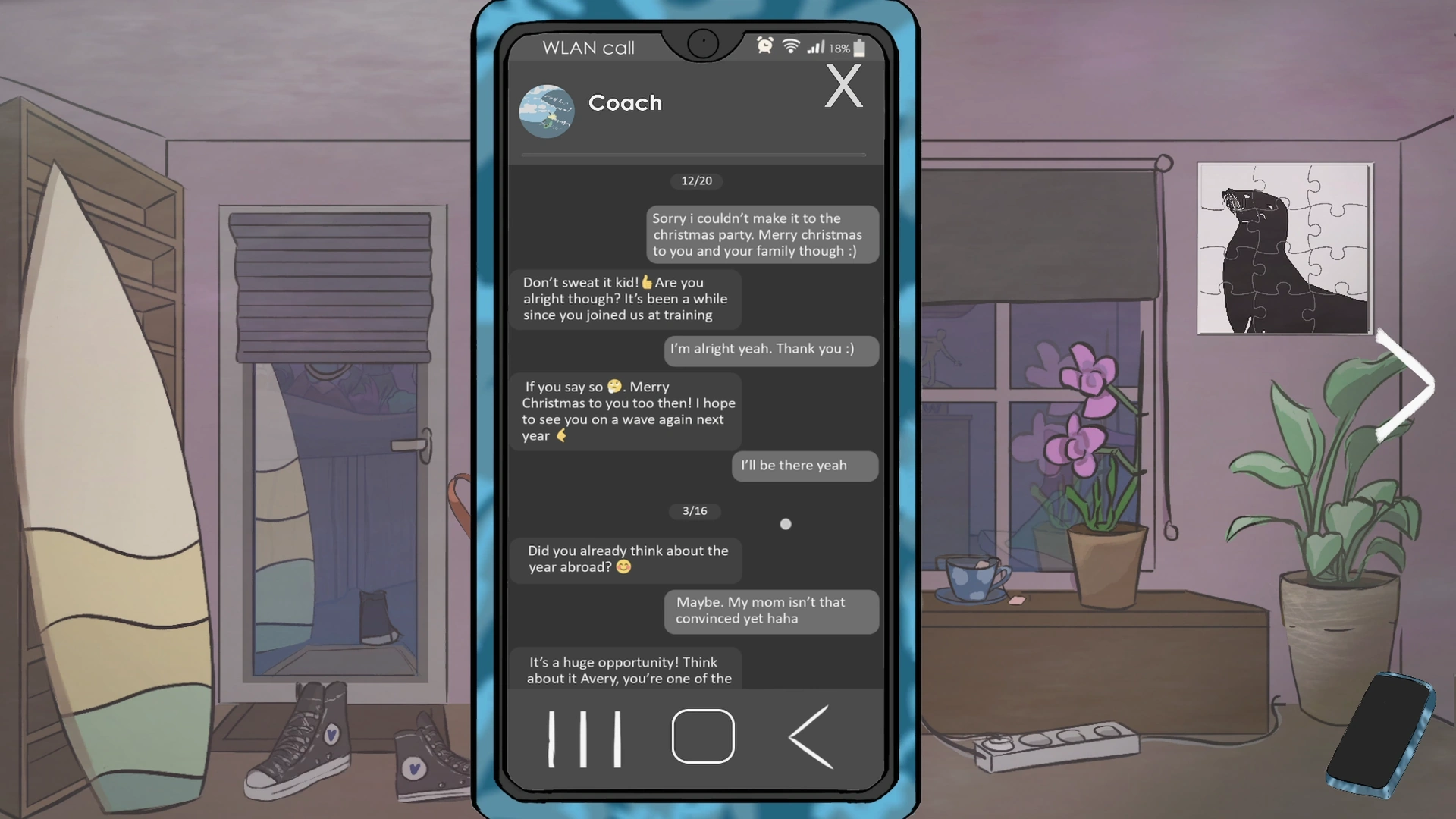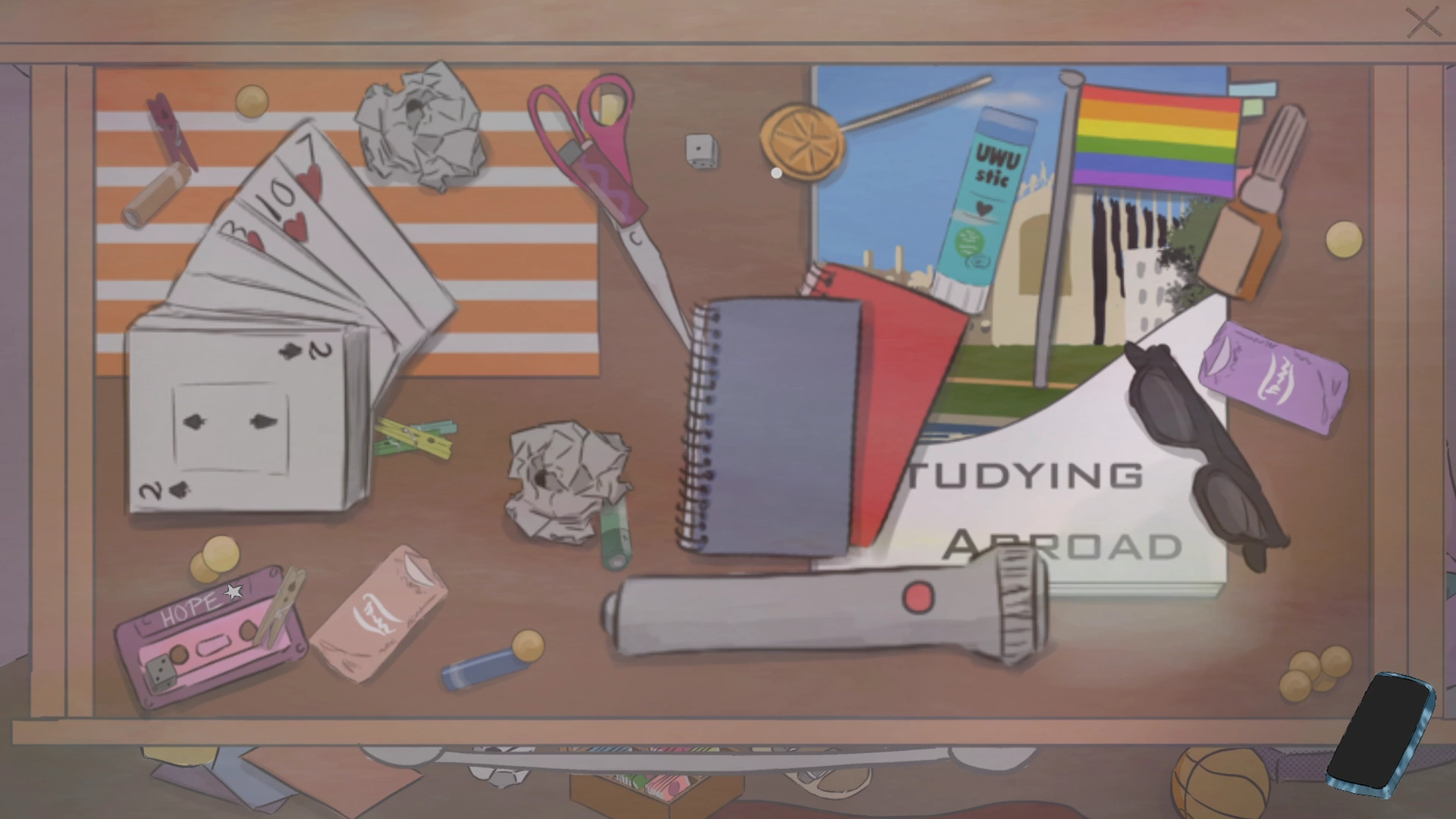
Dreams can be many things, although in most cases they’re so random and obscure that even trying to find purpose or meaning in them is almost guaranteed to result in nothing but wasted time. They can also prove extremely useful, however, as is the case in Just a spoonful, where the so-called “Spoon Theory” is used to help them take that ever-important first step towards living again.
As the story begins, our protagonist finds themselves in a state of no longer caring about much of anything. In other words, they’ve given up, and lost interest in what they once enjoyed; in their life as a whole, actually. This is something many people experience at least once, and it can be extremely challenging, seemingly impossible even, to get through it. Even so, to quote the game’s page, “Giving up shouldn’t be how you solve it though, ever.”

Over the course of Just a spoonful, we’re taught about Spoon Theory – a popular tool used to help those who struggle to perform daily tasks manage their energy levels – in a dream. This is accomplished by way of something akin to a hidden-object game where certain items are needed to progress, only the game never explicitly states what or where they are. Except it actually does, as a bit of smartphone navigation leads to two important pages: one contains subtle clues regarding items spoons still not discovered while the other features items which have been found, and both cleverly hide undiscovered content by only revealing a silhouette of the item in question. A hint system that can be used as much as one desire or ignored entirely.
But what’s the deal with all these spoons? How exactly is locating a bunch of such in a dream going to help our struggling protagonist? Well, each spoon is tied directly to either a daily task, something that brings them joy, a chore that has been put off for far too long, or perhaps at times even all of the above. This is also how finding them works, as most are hidden behind small puzzles. While some might require transitioning back and forth between the three areas/screens, none proved overly complex or illogical. Something that without a doubt helped turn the whole experience into something far more chill, zen-like almost, than if puzzles had revolved around, say, inventory item manipulation.

Exactly how Spoon Theory applies to this might be a bit vague, confusing even. Well, remember how this all takes place within a dream? Normally, I believe Spoon Theory is used as a way of visualizing energy levels, ensuring a person doesn’t push themselves beyond their limits each day. Of course, that wouldn’t make much sense in a dream as those are generally without limits or restrictions of any kind. So what I’m thinking is that instead of each task costing a spoon from a finite supply, the dream aspect combined with the tasks required to progress means the concept actually gets turned upside down, in a way.
See, as clearly indicated by the opening cutscene and the screenshot at the top of this review, the protagonist in Just a spoonful is struggling with their identity – or in plain English, realizing they’re non-binary. It’s also unlikely to be their only ongoing uphill battle, so what are their options? The first thing that comes to mind for most is to ask for help and/or find someone to talk to. But that is definitely much easier said than done – especially compared to simply giving up. This, again, is where the dream comes into play, and quite literally at that as it provides them with a tool; a resource to make the overwhelming feeling of just about everything far more manageable. At least, that is the intent.

Now, to find out exactly what happens by the time the credits roll… well, go ahead, grab a copy of Just a spoonful and find out! Something I would highly recommend, in fact, as playing through it was an absolute joy and a relatively short one too, clocking in what felt like just the right length.
Just a spoonful is available on itch.io.
